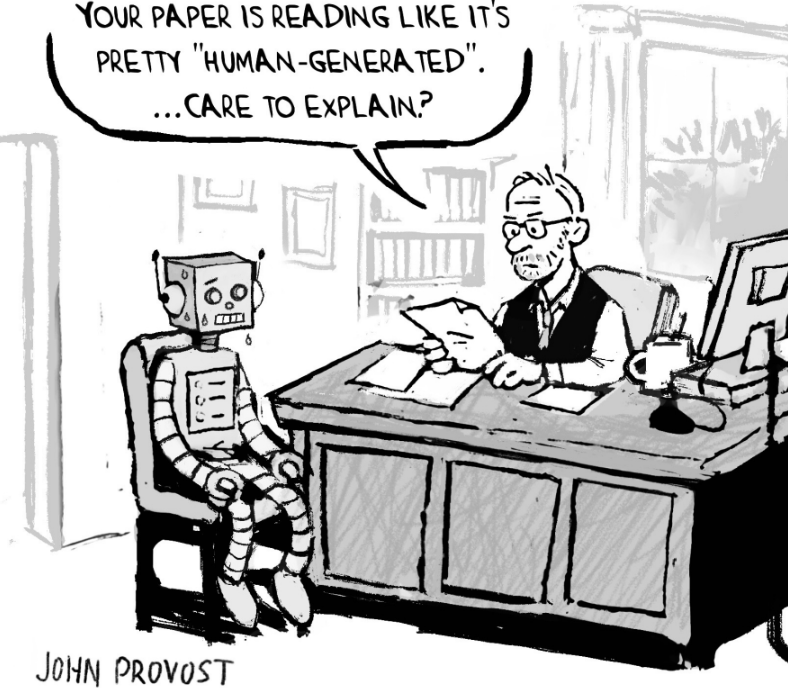The rise of AI in our daily lives has professors concerned, are robots the future of education? (Courtesy / John Provost)
April 20, 2023
Artificial Intelligence has been weaving itself into the fabric of our daily lives for quite some time. We’ve gotten comfortable asking Siri to look things up on the internet for us. It is likely that we have all rolled our eyes going through countless AI prompts just trying to get through to a real person on the other end of the support line. Quizlet just announced a new AI learning coach called Q-Chat. Even here at the Crier, I have found AI to be a valuable tool in interviews. Thanks to a handy software called Otter. AI, we can record our interviews while a bot transcribes the conversation in real time. This makes sure our quotes are accurate and allows our reporters to focus on the interviewee more than scrambling to write everything down.
AI has its benefits surely, but new software like ChatGPT has made professors wary of the future of education. A previous Crier article entitled “Dear Faculty: Coming soon to a student paper on your desk … artificial intelligence” was written by Ellie Duffin on Feb. 23. This was the first I had heard of this new program and I was curious. Naturally, I made an account and began typing nonsense prompts to see what it would give me. I had to admit, this bot did a pretty good job. So I decided to give it another test and asked it to write about how AI is bad for students. It felt like getting someone to say “I’m an idiot” during a game of copycat as a kid.
For your enjoyment, I have published the results of this prompt in this issue (see page 6). I am not sure how professors can defeat the wave of AI, but the chatbot did give some suggestions. One thing is for certain though, AI is here to stay and will only continue to evolve. For the sake of education, professors must quickly learn how to evolve along with it.



